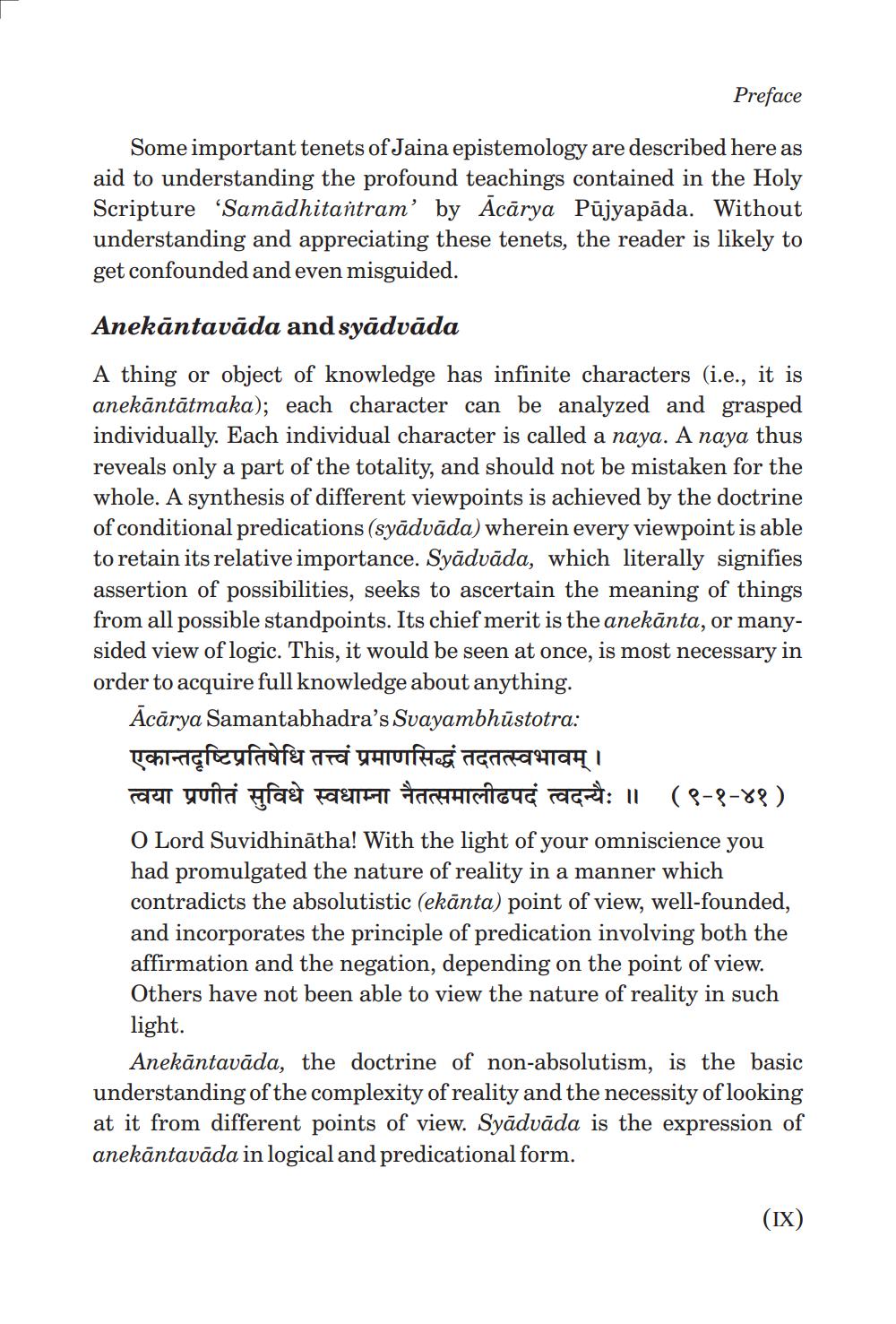________________
Preface
Some important tenets of Jaina epistemology are described here as aid to understanding the profound teachings contained in the Holy Scripture 'Samādhitantram' by Acārya Pūjyapāda. Without understanding and appreciating these tenets, the reader is likely to get confounded and even misguided.
Anekāntavāda and syādvāda A thing or object of knowledge has infinite characters (i.e., it is anekāntātmaka); each character can be analyzed and grasped individually. Each individual character is called a naya. A naya thus reveals only a part of the totality, and should not be mistaken for the whole. A synthesis of different viewpoints is achieved by the doctrine of conditional predications (syādvāda) wherein every viewpoint is able to retain its relative importance. Syādvāda, which literally signifies assertion of possibilities, seeks to ascertain the meaning of things from all possible standpoints. Its chief merit is the anekānta, or manysided view of logic. This, it would be seen at once, is most necessary in order to acquire full knowledge about anything.
Ācārya Samantabhadra's Svayambhūstotra: एकान्तदृष्टिप्रतिषेधि तत्त्वं प्रमाणसिद्धं तदतत्स्वभावम् । reen yuítai yrat Fateht t hicíGUS Faget: 11 (8-8-88) O Lord Suvidhinātha! With the light of your omniscience you had promulgated the nature of reality in a manner which contradicts the absolutistic (ekānta) point of view, well-founded, and incorporates the principle of predication involving both the affirmation and the negation, depending on the point of view. Others have not been able to view the nature of reality in such light.
Anekāntavāda, the doctrine of non-absolutism, is the basic understanding of the complexity of reality and the necessity of looking at it from different points of view. Syādvāda is the expression of anekāntavāda in logical and predicational form.
(IX)




